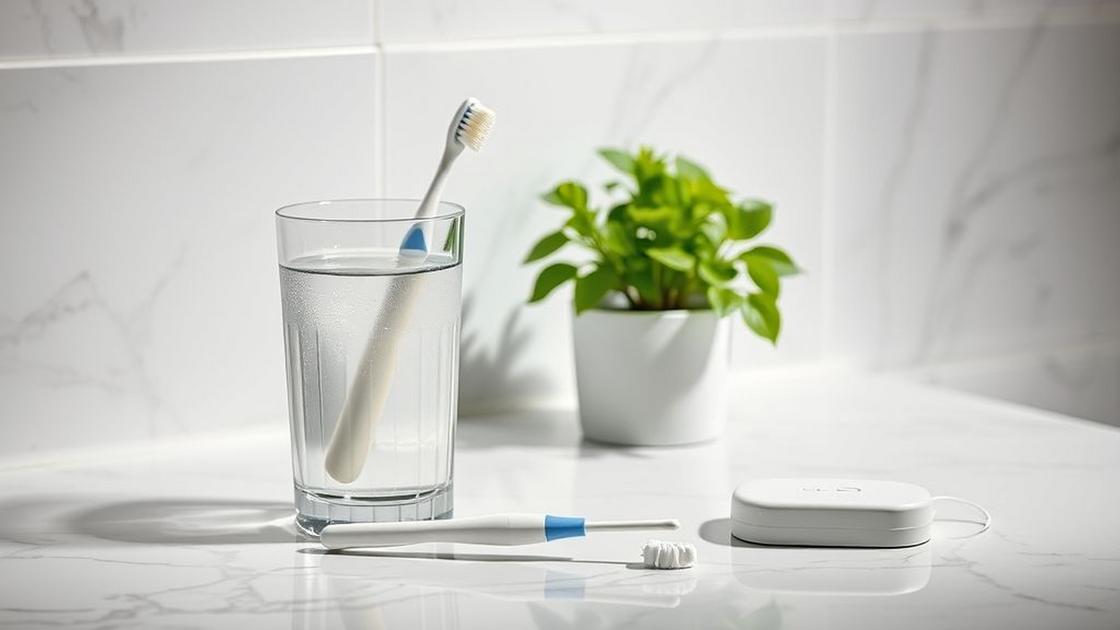As women age past 40, many experience changes in their bodies that can affect their oral health. Natural dental care tips for women over 40 are essential for maintaining a vibrant smile and overall well-being. This journey isn’t just about beauty; it’s about embracing self-care and feeling empowered through every smile. Let’s explore how simple, natural practices can make a meaningful difference in your dental routine.
Understanding Oral Changes After 40
As women reach their forties, various oral changes can become noticeable. Hormonal shifts, especially around menopause, can significantly impact oral health. Many women may experience dry mouth or changes in gum sensitivity, leading to discomfort during everyday activities like eating or brushing.
It is common to find that gums may recede, making teeth appear longer and more susceptible to decay. Furthermore, changes in saliva production can alter how the mouth feels and its ability to naturally cleanse itself. Being aware of these changes is the first step in taking care of your smile.
The Role of Nutrition in Dental Health
Nutrition plays a vital role in maintaining dental health, especially after 40. Eating foods rich in vitamins and minerals can help strengthen teeth and improve gum health. Here are some key nutrients to focus on:
- Calcium: Essential for strengthening teeth. Include dairy products, leafy greens, and fortified alternatives.
- Vitamin D: Helps with calcium absorption. Find it in fatty fish, egg yolks, and exposure to sunlight.
- Vitamin C: Crucial for gum health. Citrus fruits, berries, and bell peppers are excellent sources.
- Omega-3 Fatty Acids: Known for anti-inflammatory properties, beneficial for gum tissue. Sources include walnuts, flaxseeds, and fatty fish.
Incorporating these nutrients into your daily meals can lead to a noticeable improvement in oral health.
Herbal Remedies for Gum Care
Many women are turning to herbal remedies for oral care, preferring natural options. Here are a few gentle remedies that can support gum health:
- Chamomile Tea: Known for its anti-inflammatory properties. Rinsing with chamomile can soothe irritated gums.
- Clove Oil: Offers natural analgesic properties. Applying a small amount to sore gums can provide relief from discomfort.
- Aloe Vera: Its soothing gel can promote healing and reduce inflammation in the mouth.
- Tea Tree Oil: Known for its antibacterial properties, diluted tea tree oil can help fight infection.
Before trying any herbal remedies, it’s a good idea to consult with your dental care provider.
Natural Whitening Solutions for Teeth
Many women desire a bright smile but want to avoid harsh chemicals in whitening products. Here are some natural solutions to consider:
- Baking Soda: A natural abrasive that can gently polish teeth. Use once a week to help remove surface stains.
- Activated Charcoal: Known for its absorbent properties, activated charcoal can help lift stains. Rinse thoroughly afterward.
- Apple Cider Vinegar: This can be diluted with water and used as a mouth rinse to help reduce stains.
- Strawberries: Their malic acid can naturally whiten teeth. Mash them up and use as a natural paste!
Hydration and Its Impact on Oral Health
Staying hydrated is crucial for oral health. Dehydration can lead to dry mouth, increasing the risk for cavities and gum disease. Here are some tips to increase fluid intake:
- Carry a Water Bottle: Having one nearby will serve as a reminder to sip throughout the day.
- Infuse Water: Add slices of fruit or herbs to enhance flavor and make drinking water more enjoyable.
- Avoid Sugary Drinks: These can lead to dental decay. Opt for water or herbal teas instead.
Keeping well-hydrated will not only benefit your oral health but also improve your overall well-being.
Tips for Reducing Tooth Sensitivity
Tooth sensitivity can be frustrating, particularly with age. Here are some tips for managing it:
- Use a Soft-Bristled Toothbrush: Hard bristles can wear down enamel and irritate gums.
- Choose Sensitivity Toothpaste: Formulated to help reduce pain from triggers like hot or cold foods.
- Avoid Acidic Foods: Foods like citrus fruits and soda can wear away enamel, increasing sensitivity.
- Practice Good Oral Hygiene: Regular brushing and flossing are crucial in preventing sensitivity.
The Benefits of Oil Pulling for Women
Oil pulling is an ancient practice that many women are finding beneficial. Here’s how it works:
Swish a tablespoon of oil, such as coconut or sesame, in your mouth for about 15–20 minutes. This can help remove toxins, reduce bacteria, and improve gum health. Over time, practitioners report whiter teeth and fresher breath. It’s important to spit out the oil afterward and rinse with water to remove any residue.
Maintaining a Balanced pH in the Mouth
Keeping a balanced pH level in your mouth is vital to prevent decay and maintain oral health. An acidic environment can lead to erosion, so here are some ways to maintain balance:
- Eat Alkaline Foods: Incorporate foods like spinach, cucumbers, and avocados into your diet.
- Limit Sugar Intake: Sugar promotes acid production which can harm teeth.
- Stay Hydrated: As mentioned, drinking water can help rinse away acids.
- Use a PH Balance Mouthwash: This can help restore balance to your oral environment.
Consistently managing your mouth’s pH can lead to healthier teeth and gums.
Gentle Dental Hygiene Practices
Finding gentle methods for dental hygiene can be soothing and effective. Here are some practices to consider:
- Brush Twice Daily: Use gentle strokes to clean your teeth without damaging gums.
- Floss Daily: This steps helps remove plaque and food particles from between teeth.
- Use Mouthwash: Choose an alcohol-free mouthwash to avoid dryness.
- Visit the Dentist Regularly: Regular check-ups can help catch issues early.
The Connection Between Stress and Oral Health
Stress can have a profound effect on oral health. Many women may experience increased grinding or clenching of teeth during stressful periods. This can lead to jaw pain and damaged teeth. Here are some ways to manage stress and protect your mouth:
- Practice Mindfulness: Engage in breathing exercises or meditation to reduce daily stress.
- Exercise Regularly: Physical activity can help lower overall stress levels.
- Establish a Relaxing Routine: Make time for yourself each day, whether it’s reading, taking a bath, or practicing yoga.
- Seek Support: Don’t hesitate to reach out to friends or professionals when you need help coping.
Managing stress effectively can lead not only to a brighter smile but also to overall improved well-being.






